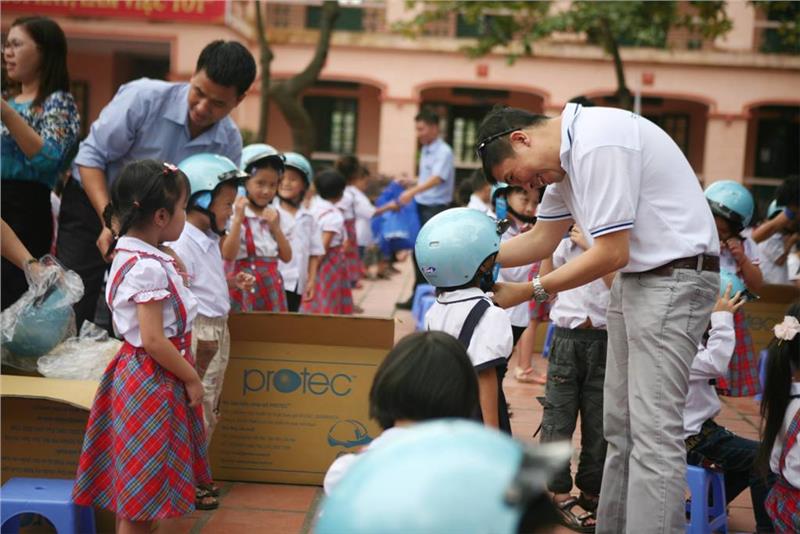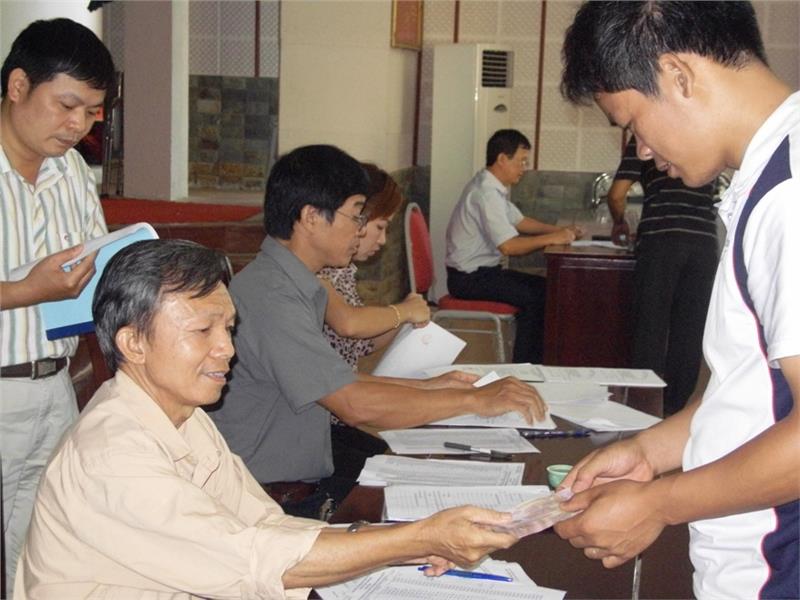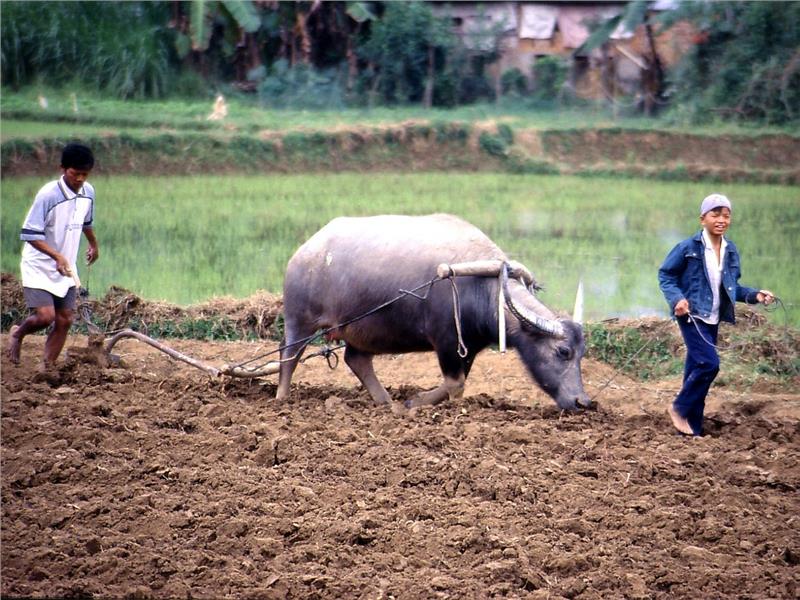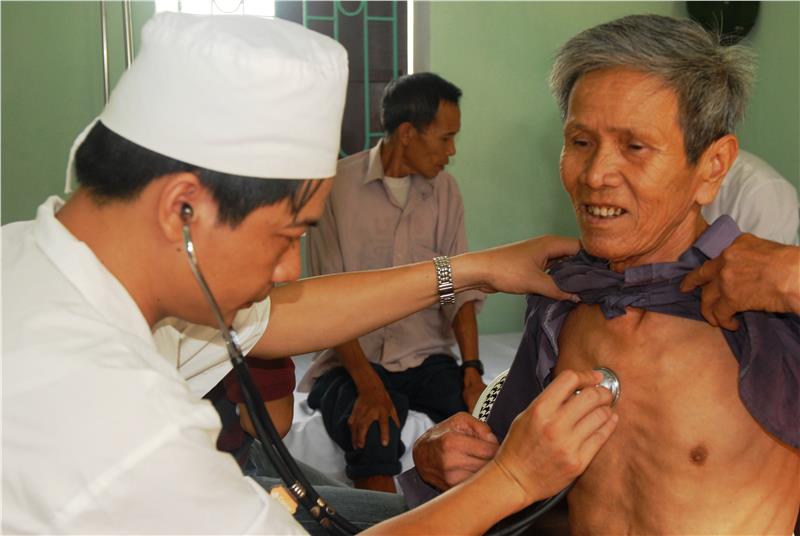Ensuring social welfare in Vietnam is a required and necessary condition of a stable national development, contributing to the realization of social rights of all citizens. Overcoming difficulties and challenges, including distortion, and distortion of hostile forces and a number of unwilling organizations and individuals under the leadership of the Party and State of Vietnam, many activities of social welfare are increasingly deployed effectively, and become a bright spot in the human rights of Vietnamese.

As being responsible member of United Nations and the global community, Vietnam always shares and respects all international requirements and pledges on human rights. The development of social welfare and living standard in Vietnam are highly appreciated by Vietnamese government. The living standard in Vietnam is ensured, improved more with the most practical methods and motivation for the national development. Experiencing decades of brutal wars, suffering more than 17 million tons of bombs, more than 70 million liters of chemicals containing dioxin, there are more than four million of disabilities, people disabled by bombs, poisons, and millions of people who are helpless, poor, lonely elderly and children. Vietnam is also put under the pressure of millions people entering working age, and tens of millions of people working in the informal and vulnerable sectors. Therefore, Vietnam always desires for peace and stability to develop the living standard in Vietnam, to compensate for those who are disadvantaged. Vietnam sees ensuring Vietnam social welfare a diverse system with a feature of sharing and effectively according to the overall national strategy as the cause of the entire political system and people, in which the State plays a key role.

Poverty reduction in Vietnam is considered an urgent, medium, long-term task in top priorities of ensuring social welfare. The Vietnamese government helps the poor mainly through loans, instructions on do business. Funds for poverty reduction are founded at many localities based on helps of people and the State. In addition, taking advantage of humanitarian aids of both domestic and international sources is highly conducted, with striving to increase the number of wealthy households, and reduce poverty. From 2003 to 2012, the State budget accounted for over 51 % of the total expenditure for ensuring Vietnam social welfare, about 6.6 % of GDP/year. In the period 2006 - 2012, the Government has invested more than 700 trillion of state bonds in nearly 3,000 projects of transportation, irrigation, health, education and support to strengthen the poverty reduction. In particular, the ethnic minority groups and mountainous areas received investment of over 54,770 billion from State budget. Each year, the State spends budget on regular social allowances for about 2 % of the population, and irregular allowance of about 0.5 % - 0.6 % of GDP for overcoming the consequences of disaster. In the period 2010 - 2013, the State also give ethnic groups the right to managing and stabilizing forest lands; and mobilize ethnic minorities to stabilize their life in suitable areas for the national and community socio – economic benefits.

The Vietnam living standard is increasingly proved significantly. The approaching and enjoying of basic social services of Vietnamese people are raised, which is an important point in ensuring social welfare in Vietnam. At the end of 2012, approximately 90.7% of the poorest accessed to electricity grids; more than 85% of the rural population got fresh water to use; 100% of commune had health station, in which 78% of communes met national standards of health care; 100 % of communes had roads to the center; 67.5 % had minor irrigation works. Thousands of gratitude and hundreds of social housing projects were implemented across the country. Since 2010, 100% of communes have enough primary schools and secondary schools. Net enrollment ratio in primary education age is 97.7 % and the junior secondary level is 87.2 %. In Vietnam, there are 10 thousand of community schools and learning centers, and nearly 700 vocational schools.

Types of insurance in Vietnam are being expanded with more and varied products. The number of subjects participating in social insurance, health insurance, and unemployment insurance is increasing, and it is entitled to adequate, safe and proper rights. In 2012, over 60.5 million people participated in social insurance and health insurance, rising by 5.9 %. As of 2011, compulsory social insurance in Vietnam has attracted 20% of the labor force and 70% of related objects. Voluntary social insurance attracts more than 0.22% of eligible employees to participate. Only two years 2011 - 2012, the state budget supported more than 22 trillion health insurance for 29 million poor people, ethnic minorities, and children under six. The average life expectancy of Vietnamese is 73-74 years old. The poverty rate continued to fall throughout the country. Poverty rates in ethnic minorities decreased from 47% in 2006 to 28.55% in 2012 in the North West, 17.39% in the North East, 15.58% in Highlands, and 15.01 % in North Central. The average income of poor households increased by 2.3 times in 2010; GDP per capita increased from US$1,024/person in 2008 to US$1,540/person in 2012.
These guidelines, policies, actual results of operation, directions, and targets mentioned above confirm the consistent and tireless efforts in ensuring Vietnam social welfare. They are also strong evidences refuting the allegations of deliberate distort or deny the role of the State of Vietnam in work of ensuring social welfare in Vietnam. At the same time, this truism also rejects decisively slander, blatant fabrications and distorted interpretation of some who believe that Vietnam also has the phenomenon of ethnic discrimination and abandoning the poor, especially in rural areas and mountainous areas. With a better social welfare, more openness and consensus, it is and will be an important contribution to national development, improving the quality of people's lives and enhancing Vietnam position in the world.
